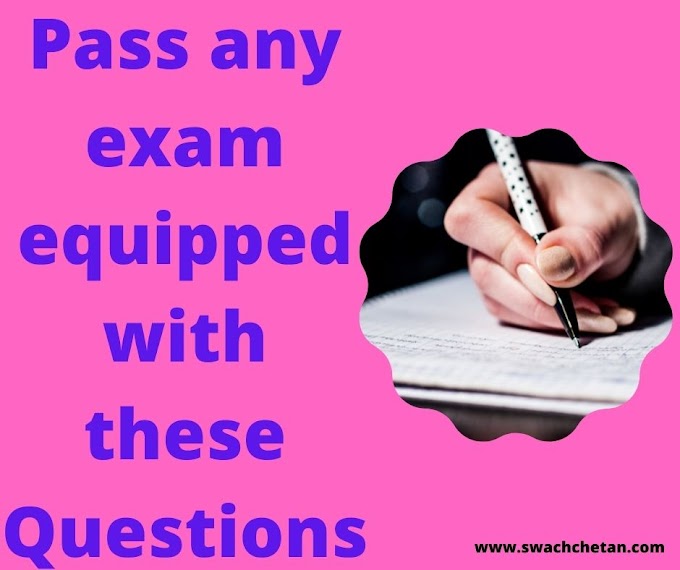The following are the ten major myths about Memory & Concentration
These ten myths about Memory and Concentration have been outlined here because people are made to believe they are true.
Unless we understand that these are myths, we become gullible to unscrupulous people who exploit our innocence or ignorance.
If you would like to know the proper explanations for these myths, you can refer to my e-book, “Intent Focusing”.
However, I have given here the facts (as I have found out through my research), alongside each myth.
Hope this will be beneficial to you.
MYTH 1
Memory is a simple function
FACT 1
Memory is a complex process and not a function
Such a process is
very intricate involving several areas of the brain like the medulla,
cerebellum, limbic system, and the association areas of the cerebral cortex.
There is a neural transmission from one region of the brain to another during
information processing. At the same time, both chemical and physical changes
occur in the brain. Until all the corresponding areas of the brain are
activated, very little benefit can be derived from learning or studying.
MYTH 2
Forgetting is a problem
FACT 2
Forgetting is a symptom and not a problem
For
example, a student cannot remember an answer to a question and an
executive forgets an appointment. Though this is attributed to a lack of memory,
the actual reason for such lapse is either emotional problems or lack of
efficient learning, or both. Thus, forgetting is a symptom of an underlying
problem. The problem may lie elsewhere as in the nervous system, learning
difficulties, or emotional experiences.
MYTH 3
Recall is the best kind of Remembering
FACT 3
Redintegration is the best kind of Remembering and not the recall
When a small piece
of information can summon a huge chunk of disorganized information, it is known
as Redintegrative Memory. One word like 'accident' can invoke so many memories
in us. Or the name of a historical figure can help us reintegrate so many
pieces of information, learned and stored at different points in time. Recall is tougher than Recognition or Redintegration as a kind of remembering.
MYTH 4
Words facilitate memory
FACT 4
Imagery facilitates memory and not words
All words that the brain receives need to be converted to thoughts, ideas, and sounds and stored as imagery. Such imagery needs to be manipulated whenever new information is received. The stronger the imagery the better the memory. From a psychological perspective, episodic memory is always more beneficial than semantic memory.
MYTH 5
Passive reception of inputs enhances memory
FACT 5
Scanning for inputs enhances memory and not passive reception
We need to prepare
ourselves before we receive information. Revising what we already know and
questioning ourselves specifically will improve our searching skills. We should
seek information rather than receive information.
MYTH 6
We must consciously make an effort to receive inputs
FACT 6
Subconscious information processing should be undertaken while receiving inputs and not conscious information processing
Whenever we read a
paragraph or listen to a lecture, we feel that we can understand. Such feeling
is due to conscious information processing and is detrimental to memory. Rather
than reading words, we should try to get the message and meaning behind those
words. The overall picture should emerge in our minds once we complete a
paragraph or listen to a few sentences.
MYTH 7
Studying requires greater concentration than other types of work
FACT 7
Some types of work demand total concentration than studying, like driving a vehicle.
For example, driving
a vehicle, working on a machine, swimming, walking on a crowded street, singing,
etc., need a far higher level of concentration than studying. Most of the other
work requires constant attention and vigilance. Any distraction will lead to
mistakes or in some cases disasters.
MYTH 8
Short-term memory is highly reliable
FACT 8
Long-term memory is everlasting and not Short-term memory
The capacity of
short-term storage is very limited and needs to be repeated over and again to be
sustained in memory. On the other hand, the long-term store is relatively
permanent and its capacity is infinite. All it needs one to do is to
rehearse (and not repeat) and manipulate existing information with new
information and keep increasing the long-term store.
MYTH 9
Repetition helps us to remember
FACT 9
Rehearsal helps us to remember rather than repetition
Repetition is
helpful only for rote memory. In all other types of memory, we should try to
manipulate information or associate it with existing information. The best
example of how repetition becomes redundant is that, despite repeatedly
studying the same material for almost a year, the students do not remember much
of what they studied.
MYTH 10
Memory is a voluntary process
FACT 10
Both memory and concentration are involuntary processes
Just like breathing,
memory and concentration keep happening all the time in our life. We will not
be able to do any activity if memory and concentration cease to function.
However, this is the most misunderstood aspect where people think that we can
control our memory and concentration. Similar to breathing, we can only control
the amount of air we take in or take out! Stopping breathing may lead to
dangerous consequences. We can only direct our attention and memory, but information processing is automatic.
- If we read textbooks, then our learning will be better
- The more we study, the more we will score good marks
- What all we know we will be able to write in the examination












Please do not include any spam links in the comment box.